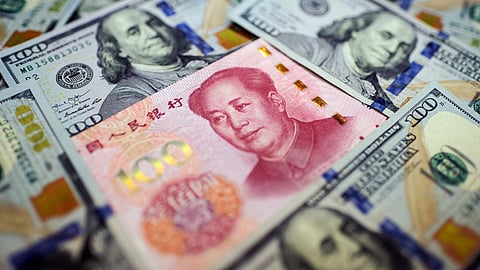

BEIJING: Deflation in China accelerated in November, official data showed Saturday, underlining the difficulties the world's second-largest economy faces in reviving slowing demand.
The figures came after President Xi Jinping said Friday that the Asian giant's post-pandemic recovery was "still at a critical stage" and warned of "increasing adverse factors in the international political and economic environment".
The consumer price index, the main gauge of inflation, fell 0.5 percent year-on-year, according to the National Bureau of Statistics (NBS).
NBS official Dong Lijuan said in a statement that the decline was linked to "downward fluctuations in the prices of energy and food".
The corresponding figure for October was a decline of 0.2 percent.
While deflation suggests goods were cheaper, it poses a threat to the broader economy as consumers tend to postpone purchases in the hopes of further reductions.
A lack of demand can then force companies to cut production, freeze hiring or lay off workers, while potentially also having to discount existing stocks -- dampening profitability even as costs remain the same.
The NBS also said producer prices sank for the 14th consecutive month, sliding three percent year-on-year compared to 2.6 percent the previous month.
Dong attributed the decline to "a rebound in international oil prices which weakened demand for some industrial goods".
China's economy grew a modest 4.9 percent in the third quarter, slightly below Beijing's annual target of around five percent, which is one of its lowest in years.
Xi urged measures to boost the economy at a meeting of the ruling Communist Party's Politburo, state broadcaster CCTV reported Friday.
"It is necessary to focus on accelerating the construction of a modern industrial system, expand domestic demand, (and) prevent and defuse risks," he said.
Xi also emphasised the need to shore up "self-reliance" in key science and technology sectors, and to "accelerate the construction of a new development layout".
Officials have struggled to sustain a recovery from the impact of the pandemic, even after removing strict and at times draconian containment measures at the end of 2022.
Exports rose in November for the first time in seven months, officials announced Thursday, although the reading compares with a low base from last year when the impact of Covid policies was being felt the most.